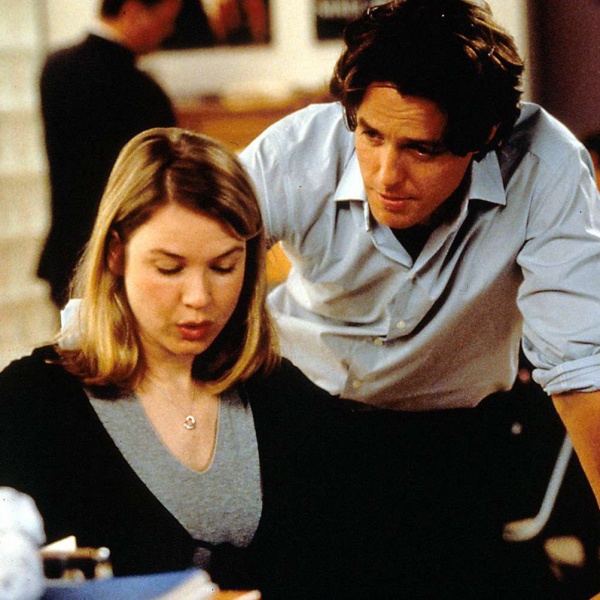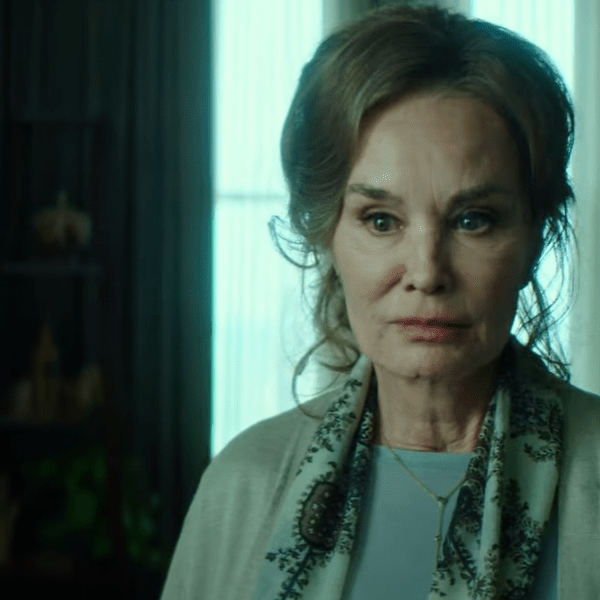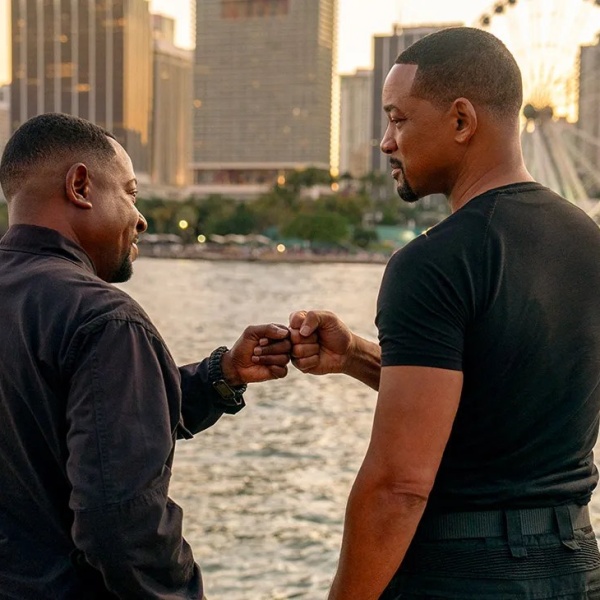
Even more so than usual, 2012 should be a particularly fascinating election year. On the one hand, you’ve got the incumbent, President Barack Obama, a man elected on the promise of hope and conciliation, and a man who’s failed to live up to the sky-high expectations placed on him. On the other, you have a band of Republican candidates who have, so far, failed to look anything like contenders, instead seemingly competing in a national crazy-off. We’re a long, long way off from finding out the victor, but to get things underway, one of the most politically engaged actor-directors around has opened the Venice Film Festival with a look behind the scenes of a presidential primary race; namely, George Clooney‘s “The Ides of March.” Good timing indeed, but has the star’s fourth directorial effort turned out like “Good Night and Good Luck,” or like “Leatherheads“?
Stephen Myers (Ryan Gosling) is something of a wunderkind. Still in his twenties, he’s a senior adviser to the campaign of Democratic primary candidate Governor Mike Morris (Clooney). Morris seems to be the real deal, a once-in-a-lifetime kind of candidate, and Myers had never been more fired up, particularly with mentor Paul Zara (Philip Seymour Hoffman) at the helm, and something on the horizon with a sparky young intern (Evan Rachel Wood). But out of the blue, Myers is approached by a rival’s campaign manager (Paul Giamatti), who claims that front-runner Morris is going to lose, and who offers him a job, something that sends events spiraling out of control.

The world of campaign officers and hotel ballrooms in which Clooney sets his film is a familiar one by now: from “The West Wing,” to films like “The Candidate” and “Primary Colors” (the latter probably the film’s closest relative), to incessant news coverage of the real thing. And it’s rarely been depicted better — the director has a real eye for the detail of the thing, although he doesn’t give much help to those who aren’t politics junkies, refreshingly throwing you in at the deep end, and we wonder if all the talk of superdelegates may alienate audiences, at least abroad. On the surface at least, it’s a film very much of its time as well, with hot button issues lifted from the headlines, and talk of an adrift Republican party striking more than a few chords.
It can also be a difficult world to make truly cinematic, but Clooney makes it work here, thanks undoubtedly to DP Phedon Papamichael (“Sideways“), who gives a real chill to the Midwestern landscapes, and makes effective use of some Gordon Willis-esque silhouettes — although it should be said that the director overplays his “let’s frame the characters in front of the American flag” a little in places. But it never feels small-scale, and fully embodies the addictive chaos of the campaign trail, something that keeps people like Stephen “married to the job,” and that’s certainly a victory for a film like this.
And of course, it helps if you can stack your cast with heavyweights, and that’s certainly what’s happened here. Surprisingly though, most of the elder statesmen don’t get much room to spread their wings. Jeffrey Wright and Marisa Tomei both have next to nothing to do, Hoffman and Giamatti are on familiar territory (the former edges it with some lovely world-weariness towards the end), and Clooney once more tinkers with his persona. Instead, it’s the younger actors who fare best.
Evan Rachel Wood follows a terrific turn in “Mildred Pierce” with another great one here. The actress isn’t often allowed to be likable on screen, but she’s enormously sympathetic here, fragile and naive and fiercely intelligent without ignoring the certain star-struck tendencies that you might expect from a young woman so close to the circus. Her chemistry with Gosling is electric, although at this point we suspect Gosling would have chemistry with a plank of wood. Or January Jones.
Gosling, incidentally, caps off an extraordinary twelve months with another top turn. It really is his show, the film’s riffing on idealism really a feint for a picture about the loss of a soul. Maybe it happens a little fast, but, like Michael Corleone, Stephen is defeated by the business, a virtual robot at the end. We say virtual, because Gosling’s chilly surface still reveals a hint of the regret that will clearly haunt the character forever.
The script, with Clooney sidekick Grant Heslov rewriting Beau Willimon‘s play “Farragut North” is, if nothing else, a model of how to open up a piece of theater for the big screen. It’s witty, though lacking the zip of, say, a Sorkin, and, for all its instant messaging and Chris Matthews cameos, oddly old-fashioned, right down to the jazz singer who scores an early scene. 
More crucially, it all feels a little convenient, at the expense of believability. We never really see why Morris has got Stephen all hot and bothered: some of his floated policies seem far-fetched, and, aside from being an atheist, doesn’t quite show the force of personality that had so many hoping that Obama would be a breath of fresh air. And as good as Wood is in the film, it doesn’t avoid the suspicion that she’s playing a plot device rather than a character.
So in answer to our earlier question, it’s not as accomplished and impassioned as “Good Night and Good Luck,” but unlike “Confessions of a Dangerous Mind,” it’s tonally assured, and unlike “Leatherheads,” it’s, well, watchable. Very watchable in fact — it moves along at a fair old clip, thanks to Stephen Mirrione‘s typically taut editing, and another fine, surprising score from Alexandre Desplat. This U.K. based writer is admittedly something of a U.S. politics junkie (we pretty much know “The West Wing” off by heart. All of it. Test us), but we had a blast. Whether wider audiences enjoy it as much remains to be seen (although we’re fairly sure that it’s early anointment as an Oscar front-runner will disappear quickly), but it at least happily confirms that Clooney the director is here to stay. [B]





